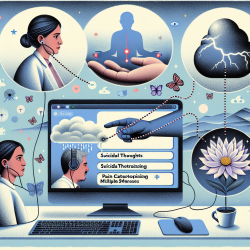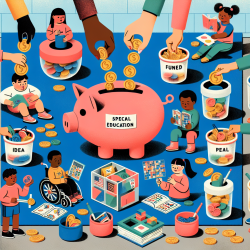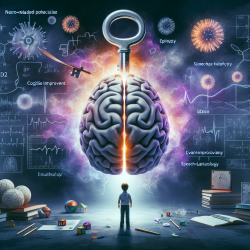Introduction
In the high-stakes world of STEM education, teachers often face unique emotional challenges. The pressure to achieve high academic standards, coupled with the inherent complexities of STEM subjects, can lead to significant stress and burnout. Recent research highlights the critical role of emotion regulation in shaping both teacher well-being and student outcomes. The study "Using Reappraisal to Improve Outcomes for STEM Teachers and Students" introduces the STEM-Model of EmotioN regulation: Teachers’ Opportunities and Responsibilities (STEM-MENTOR), offering a framework to enhance emotion regulation skills among educators.
The Emotional Landscape of STEM Teaching
STEM teachers are particularly susceptible to stress due to the demanding nature of their subjects and the high expectations placed upon them. The STEM-MENTOR framework identifies key contextual factors that influence teachers' emotional states, such as cultural norms, educational reforms, and teacher-student interactions. These factors can exacerbate negative emotions, leading to emotion dysregulation and impaired teaching effectiveness.
Emotion Regulation Strategies: Reappraisal vs. Suppression
Emotion regulation is a vital skill for educators, influencing their ability to manage stress and maintain a positive classroom environment. Two primary strategies are cognitive reappraisal and expressive suppression. Reappraisal involves reinterpreting a situation to alter its emotional impact, while suppression focuses on concealing emotional expressions. Research indicates that reappraisal is generally more effective, reducing negative affect and promoting adaptive behaviors.
Implementing the STEM-MENTOR Framework
The STEM-MENTOR framework provides a structured approach to enhancing emotion regulation among STEM teachers. By focusing on cognitive-emotional processes, the framework aims to improve teachers' emotional trajectory, ultimately benefiting both educators and students. Key components include:
- Contextual Awareness: Understanding the broader environmental factors that influence emotional states.
- Emotion Regulation Resources: Developing skills to manage emotions effectively, such as cognitive reappraisal.
- Adaptive Strategies: Encouraging the use of reappraisal over suppression to foster a supportive classroom atmosphere.
Benefits for Teachers and Students
Implementing emotion regulation strategies through the STEM-MENTOR framework can lead to significant improvements in teacher motivation, well-being, and teaching effectiveness. By modeling effective emotion regulation, teachers can positively influence their students' emotional and academic outcomes. This creates a virtuous cycle where improved teacher well-being enhances student engagement and learning, further reducing teacher stress.
Conclusion
Emotion regulation is a powerful tool for transforming the educational experience in STEM classrooms. By adopting the STEM-MENTOR framework, educators can create more supportive and effective learning environments. This not only benefits teachers' professional lives but also fosters a positive impact on students' academic achievements and emotional development.
To read the original research paper, please follow this link: Using Reappraisal to Improve Outcomes for STEM Teachers and Students.










